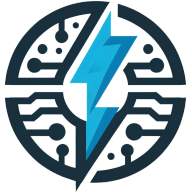Welcome to an exploration of the pioneering developments in electrical engineering. This blog post will delve into the latest innovations that are revolutionizing this dynamic field. From renewable energy solutions to artificial intelligence applications, we will uncover the transformative power of electrical engineering in today's world.
Harnessing Renewable Energy: A Game Changer
The world is shifting towards renewable energy, and electrical engineers are at the forefront of this revolution. They are developing innovative ways to harness, store, and distribute energy from renewable sources. Solar panels and wind turbines are becoming more efficient, thanks to advancements in electrical engineering.
Energy storage is a significant challenge in the renewable energy sector. Traditional batteries are not efficient enough to store large amounts of energy. However, electrical engineers are developing high-capacity batteries that can store more energy and discharge it when needed. These batteries are essential for ensuring a steady supply of renewable energy, even when the sun is not shining or the wind is not blowing.
Electric vehicles (EVs) are another area where electrical engineers are making significant contributions. They are designing more efficient motors and power electronics, which are essential for the operation of EVs. They are also working on wireless charging technology, which could make EVs more convenient to use.
Artificial Intelligence: The Future of Electrical Engineering
Artificial intelligence (AI) is transforming various sectors, and electrical engineering is no exception. Electrical engineers are using AI to design smarter systems and devices. For instance, they are developing AI-powered robots that can perform complex tasks, such as inspecting power lines or assembling electronic components.
AI is also being used to optimize power distribution. Electrical engineers are designing AI algorithms that can analyze power usage data and adjust the distribution of power accordingly. This can help to reduce energy waste and ensure that power is distributed more efficiently.
In addition, AI is being used to improve the reliability of electrical systems. Electrical engineers are developing AI systems that can predict and prevent failures in electrical equipment. This can help to reduce downtime and save costs.
Internet of Things: Connecting the World
The Internet of Things (IoT) is another area where electrical engineers are making significant contributions. They are developing devices and systems that can connect to the internet and communicate with each other. These IoT devices are transforming various sectors, from healthcare to agriculture.
In the healthcare sector, electrical engineers are designing IoT devices that can monitor patients' health and send the data to doctors in real time. This can help doctors to provide better care and respond to emergencies more quickly.
In the agriculture sector, electrical engineers are developing IoT devices that can monitor soil conditions and adjust irrigation accordingly. This can help farmers to use water more efficiently and increase crop yields.
5G Technology: A New Era of Connectivity
5G technology is set to revolutionize the way we communicate. Electrical engineers are playing a crucial role in the development of this technology. They are designing antennas and circuits that can support the high-speed, low-latency communication that 5G promises.
5G technology will enable new applications, such as autonomous vehicles and remote surgery. Electrical engineers are working on the hardware and software that will make these applications possible.
Moreover, 5G technology will require a massive amount of data to be processed and transmitted. Electrical engineers are developing more efficient data processing and transmission techniques to meet this demand.
Quantum Computing: The Next Frontier
Quantum computing is the next frontier in electrical engineering. It promises to solve problems that are currently beyond the reach of classical computers. Electrical engineers are working on the design and fabrication of quantum devices, which are the building blocks of quantum computers.
Quantum devices operate on the principles of quantum mechanics, which are fundamentally different from the principles of classical physics. This presents unique challenges for electrical engineers, but also opens up new possibilities.
For instance, quantum devices can process information in a fundamentally different way than classical devices. This could lead to more efficient algorithms and faster computation times.
Biomedical Engineering: Improving Health and Well-being
Biomedical engineering is a rapidly growing field that combines the principles of electrical engineering with the principles of biology and medicine. Electrical engineers are developing devices and systems that can diagnose diseases, deliver drugs, and monitor patients' health.
For instance, they are designing wearable devices that can monitor vital signs and alert doctors to any abnormalities. They are also developing implantable devices that can deliver drugs directly to the site of a disease.
In addition, electrical engineers are working on brain-computer interfaces, which can enable people with paralysis to control devices with their thoughts. This could dramatically improve the quality of life for people with disabilities.
The Transformative Power of Electrical Engineering
As we have seen, electrical engineering is a dynamic field that is constantly evolving. The innovations we have discussed – from renewable energy to AI, IoT, 5G, quantum computing, and biomedical engineering – are transforming our world in profound ways. They are improving our health, increasing our productivity, and making our lives more convenient. As we look to the future, we can expect electrical engineering to continue to drive progress and innovation.

